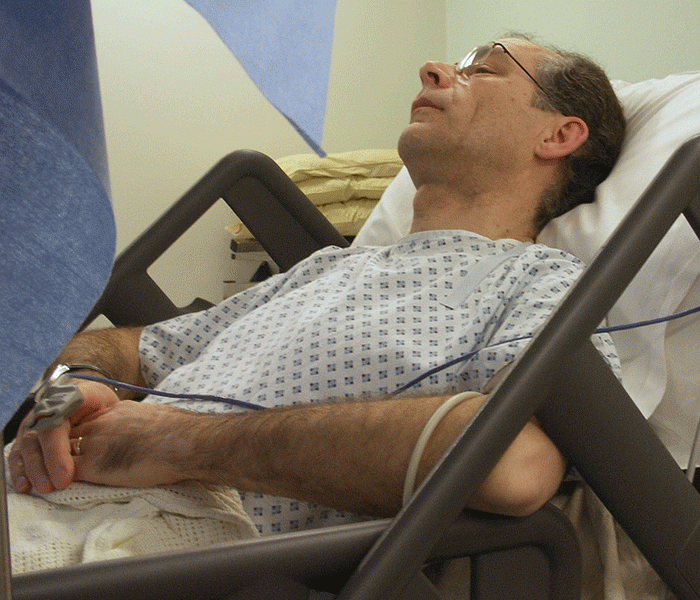Prostate cancer nursing management must be well understood because prostate cancer is the second most common cancer in men after skin cancer; however, prostate cancer can be successfully treated. According to the American Cancer Society, more than two million men in the United States are prostate cancer survivors.
Treatment for prostate cancer depends on many factors, including age at diagnosis, stage and grade of cancer, other comorbidities, and the patient's thoughts about side effects and quality of life. The most common treatments can inlude surgery, radiation, cryotherapy, hormone therapy, and expectant management (watchful waiting). Oncology nurses play an important role in caring for patients undergoing treatment for prostate cancer because sexual and urinary function, perceptions of self, and quality of life can be major stressors for this population. Nurses in all fields of practice should also be aware of considerations in prostate cancer nursing management, because the high number of survivors transition care from the oncology team to a primary care provider in the community.
Although the list is in no way exhaustive, some common chronic and long-term complications that may affect prostate cancer survivors include
- Osteopenia or osteoporosis, confirmed with a DEXA scan, can be caused by hormone therapy or surgery (orchiectomy). Engaging in weightbearing activities, quitting smoking, and limiting alcohol consumption are some measures that may decrease the risk of these effects. Consuming at least 1,200–1,500 mg of calcium and adequate vitamin D is also important.
- Fertility and sexuality concerns are probably the most critical areas for the nurse to educate and support the patient. Infertility can be caused by radiation to the testes, and nurses should be aware of resources available to patients who want to be evaluated for reproductive issues. Erectile dysfunction and decreased libido can be caused by surgery, radiation, or hormone therapy. However, staying sexually active with the aid of medications can improve the likelihood of preserved function. Nurses can initiate the conversation and let the patient know what management strategies are available out there.
- Fatigue is the most common side effect of any cancer treatment, and it should be addressed and differentiated from depression, recurrence, or other problems that may arise after treatment. Recogizing fatigue as a reality and reprioritizing are often necessary. Light to moderate exercise has also been shown to improve fatigue levels in survivors.
Prostate-specific antigen levels and digital rectal exams are recommended for those who are using expectant management as well as for those who have been treated. Continued surveillance and annual physical exams are important in prostate cancer nursing management and should be reinforced by every nurse.
Education on what to expect and management of chronic and late effects is paramount in prostate cancer nursing management. In providing direct care to these patients, the nurse has a unique opportunity to initiate a conversation with the patient about concerns, fears, and expectations as well as to provide the necessary support to men with the diagnosis of prostate cancer.
For more information on prostate cancer nursing management, check out the ONS Site-Specific Cancer Series: Prostate Cancer book and online course.






